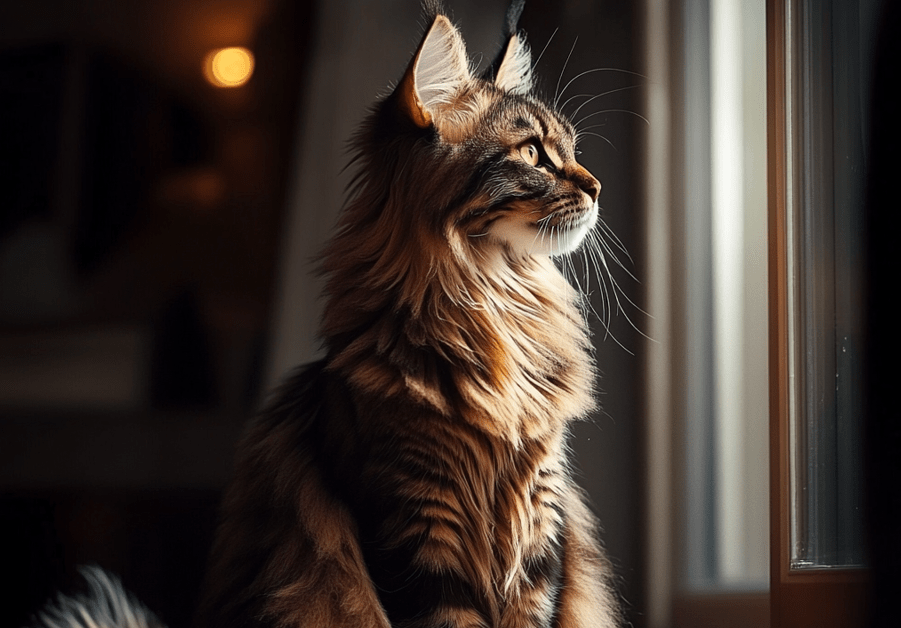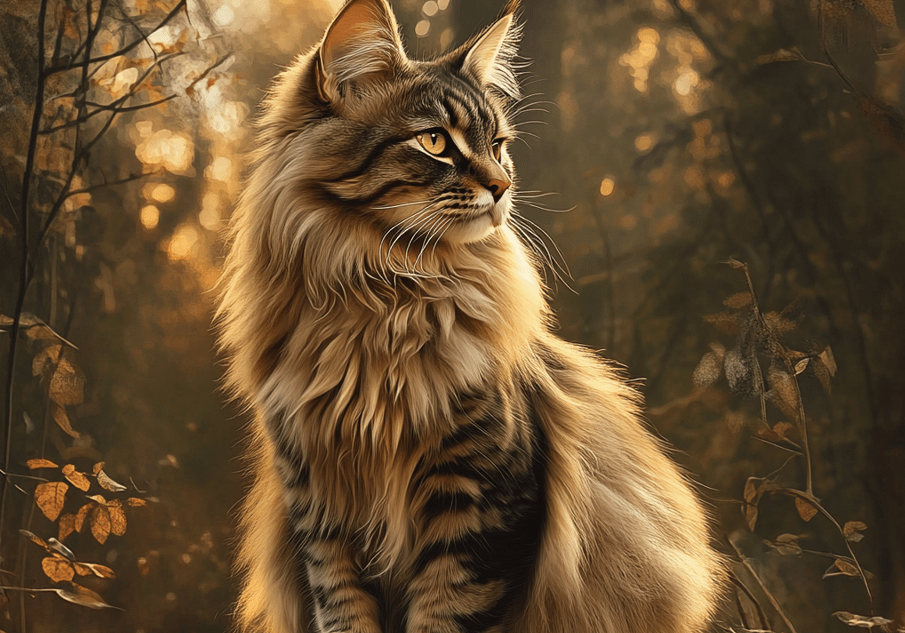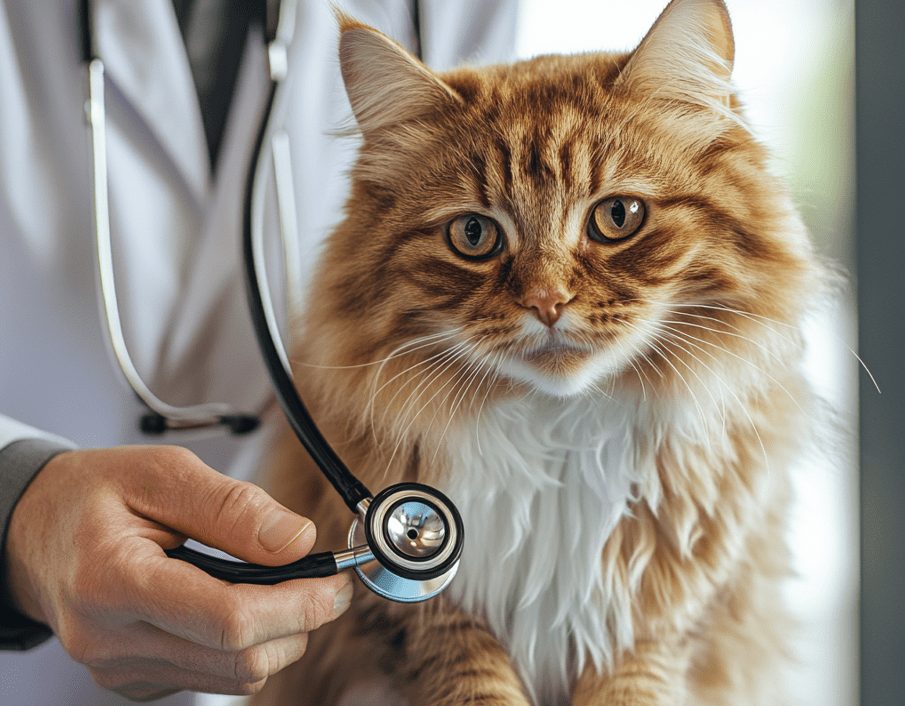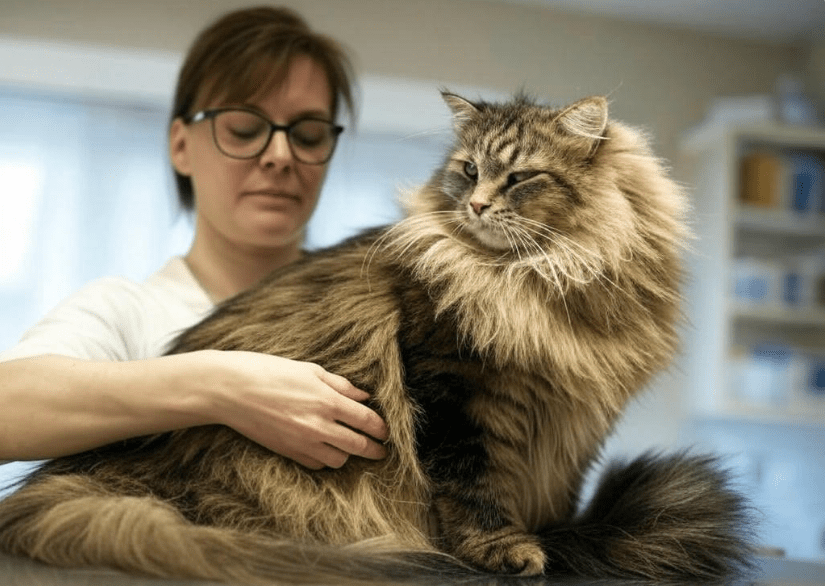
Maine Coon kittens are known for their gentle, dog-like personalities and impressive size, but proper Maine Coon kitten socialization is key to raising a confident, well-adjusted cat. These “gentle giants” thrive on interaction and adapt well to various environments when socialized early. This comprehensive guide offers practical tips to help your Maine Coon kitten grow into a friendly, fearless adult, covering socialization techniques, timelines, and common challenges. By understanding their unique needs, you’ll set the foundation for a happy, healthy companion who brings joy to your home for years.
Table of Contents
ToggleWhy Socialization Matters for Maine Coon Kittens
Socialization is the process of exposing a kitten to diverse experiences—people, animals, environments, and stimuli—in a positive, controlled way. For Maine Coons, known for their sociable and intelligent nature, early socialization shapes their behavior and emotional well-being. Proper socialization during their critical developmental window ensures they become confident, adaptable cats.
Benefits of Socialization
Confidence: Well-socialized Maine Coons are less likely to be fearful or anxious in new situations, such as vet visits or meeting strangers.
Friendliness: Exposure to people and pets fosters their naturally affectionate personality, making them ideal family companions.
Reduced Behavioral Issues: Socialized kittens are less prone to aggression, excessive shyness, or destructive behaviors like scratching furniture.
Adaptability: Maine Coons with varied experiences handle changes—like moving or new household members—with ease.
Stronger Bonding: Socialization strengthens the trust between you and your kitten, enhancing your lifelong relationship.
Risks of Poor Socialization
Without adequate socialization, Maine Coon kittens may develop:
1.Fearfulness or skittishness around strangers or loud noises.
2.Aggression toward other pets or people.
3.Anxiety in unfamiliar environments, leading to stress-related health issues.
4.Difficulty adjusting to routine care, like grooming or nail trimming.
Understanding Maine Coon Kitten Development
Maine Coons are one of the largest domestic cat breeds, with males reaching 13–18 pounds and females 8–12 pounds. Their slow maturation (3–5 years) and sociable nature make early socialization critical. To effectively socialize your kitten, align efforts with their developmental stages.

Critical Socialization Window (2–12 Weeks)
The most important period for Maine Coon kitten socialization is between 2 and 12 weeks, when kittens are most receptive to new experiences. During this time:
2–4 Weeks: Kittens rely on their mother and littermates for early social cues, learning bite inhibition and play behavior.
4–8 Weeks: They become curious about their environment, making it ideal to introduce gentle handling, sounds, and textures.
8–12 Weeks: Kittens are ready for broader exposure to people, pets, and routines, building confidence for life.
After 12 weeks, socialization is still possible but requires more patience, as kittens become more cautious.
Maine Coon-Specific Traits
Social Nature: Maine Coons are outgoing and thrive on interaction, making them eager to engage during socialization.
Intelligence: Their sharp minds absorb experiences quickly, so varied stimuli prevent boredom.
Size and Energy: Their large size and playful energy require safe, active environments to explore.
Vocal Communication: Maine Coons use chirps and trills to express themselves, which can guide you in gauging their comfort during socialization.
How to Socialize Your Maine Coon Kitten
Socializing a Maine Coon kitten involves gradual, positive exposure to a range of experiences. Here are actionable tips to build confidence and adaptability, tailored to their unique needs.
1. Start Early with Gentle Handling
Handling your kitten early builds trust and prepares them for future care.
Frequent, Short Sessions: Hold your kitten for 1–2 minutes several times daily, stroking their fur, paws, and ears to mimic grooming or vet exams.
Involve Family Members: Encourage gentle petting by different people to accustom them to various hands and voices.
Positive Reinforcement: Reward calm behavior with treats, praise, or play to associate handling with positive outcomes.
Respect Boundaries: If your kitten squirms or hides, give them space and try again later to avoid stress.
2. Introduce a Variety of People
Maine Coons are naturally friendly, but exposure to diverse people ensures they’re comfortable with everyone.
Different Ages and Appearances: Invite friends, children, and seniors to interact, ensuring supervised, calm encounters.
Varying Characteristics: Expose them to people wearing hats, glasses, or uniforms (e.g., delivery workers) to reduce fear of unusual appearances.
Controlled Settings: Start with one or two visitors at a time, gradually increasing numbers as your kitten gains confidence.
Watch for Stress: If they hide or flatten their ears, slow down and offer a safe retreat, like a cozy bed.
Tip: Ask visitors to offer treats or toys to create positive associations.
3. Expose to Other Pets Safely
Maine Coons often get along with other animals, but introductions must be gradual.
Supervised Meetings: Introduce your kitten to calm, vaccinated pets in a neutral space, using a barrier (e.g., a baby gate) initially.
Cat-Friendly Dogs: If you have a dog, ensure it’s well-trained and calm. Let them sniff through a barrier before face-to-face interaction.
Littermate Play: If your kitten is with siblings, let them play to learn social cues like bite inhibition.
Monitor Reactions: Watch for hissing or puffing up, which signals discomfort. Separate and try again later with shorter sessions.
4. Familiarize with Household Sounds and Objects
Maine Coons are sensitive to their environment, so acclimating them to common stimuli prevents fear.
Household Noises: Gradually introduce sounds like vacuums, doorbells, or dishwashers. Start at a low volume or distance, rewarding calm behavior.
Daily Objects: Let them explore safe items like bags, boxes, or brooms to reduce fear of movement or textures.
Grooming Tools: Show them brushes, nail clippers, or combs, touching them gently to prepare for grooming routines.
Carriers and Cars: Place treats in a carrier to make it a safe space, and take short car rides to ease vet visit stress.
Tip: Pair new stimuli with treats or play to create positive associations.
5. Encourage Exploration in Safe Environments
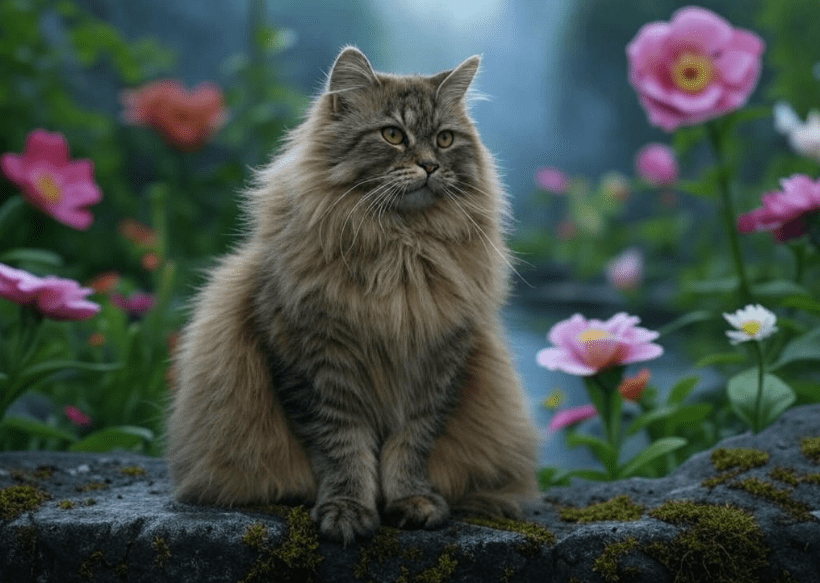
Maine Coons are curious and active, so provide opportunities to explore safely.
Kitten-Proofed Rooms: Start with one room, removing hazards like cords or toxic plants, and add toys or boxes for enrichment.
Vertical Spaces: Install cat trees or shelves, as Maine Coons love climbing, which boosts confidence.
Supervised Outdoor Exposure: Use a secure catio or harness for brief outdoor time, introducing grass, wind, or birds.
Rotate Stimuli: Change toys or rearrange furniture weekly to keep their environment engaging.
6. Socialize Through Play
Play is a natural way to build confidence and social skills.
Interactive Toys: Use feather wands, laser pointers, or balls to encourage chasing and pouncing, mimicking hunting.
Varied Playmates: Let family members or other pets join play sessions to broaden social exposure.
Puzzle Toys: Introduce treat-dispensing toys to stimulate their intelligence and reward problem-solving.
Daily Sessions: Aim for 15–30 minutes of play daily, split into 2–3 sessions, to burn energy and reinforce bonding.
Tip: End play with a “catch” (e.g., grabbing a toy) to satisfy their prey drive.
7. Prepare for Routine Care
Socializing your Maine Coon for handling and care prevents stress later.
Grooming Practice: Brush gently with a soft brush, rewarding with treats, to prepare for their semi-long coat maintenance.
Nail Trimming: Touch their paws and press gently to extend claws, gradually introducing clippers.
Dental Care: Rub their gums with a finger or pet-safe toothbrush to ease them into dental hygiene.
Vet Visit Prep: Simulate exams by checking their ears, mouth, and body, pairing with treats for positive reinforcement.
8. Address Stress and Fear
Maine Coons are sensitive, so managing stress is crucial during socialization.
Safe Spaces: Provide a cozy bed, box, or tunnel where they can retreat if overwhelmed.
Pheromone Aids: Use Feliway diffusers or sprays to create a calming environment.
Gradual Exposure: Introduce new experiences slowly, increasing intensity only when they’re comfortable.
Body Language: Watch for signs of stress (e.g., flattened ears, dilated pupils) and pause if needed.
Socialization by Age
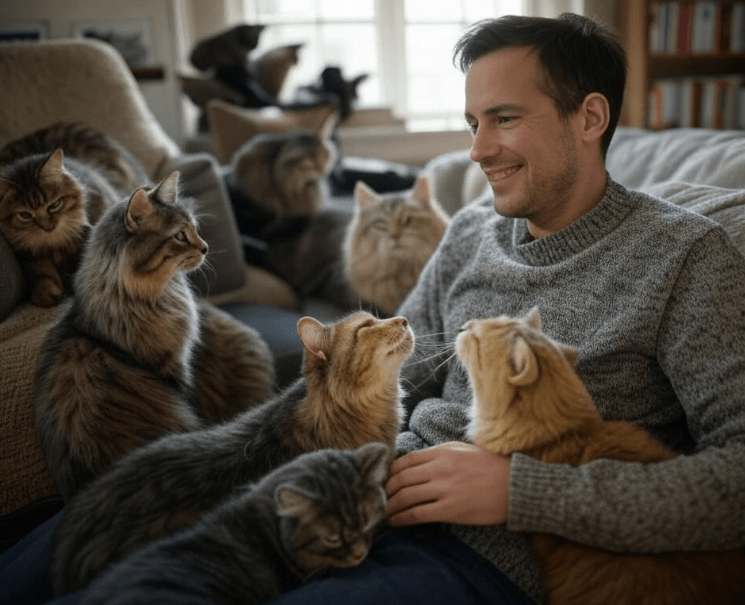
Align socialization with your Maine Coon kitten’s developmental stages for best results.
2–4 Weeks: Focus on gentle handling by the breeder or owner, exposure to littermates, and soft textures (e.g., blankets).
4–8 Weeks: Introduce household sounds, varied people, and safe objects. Start grooming and carrier training.
8–12 Weeks: Broaden exposure to other pets, car rides, and outdoor stimuli. Increase play and handling intensity.
12 Weeks–6 Months: Reinforce earlier experiences, adding more complex environments (e.g., busier households) and routine care practice.
6 Months–1 Year: Continue socialization to maintain confidence, focusing on new situations like travel or visitors.
Note: If you adopt an older kitten, socialization is still possible but may take longer. Use the same techniques with extra patience.
Common Socialization Challenges and Solutions
Even with the best efforts, challenges may arise. Here’s how to address them:
Fearfulness: If your kitten hides or cowers, reduce stimuli intensity, offer treats, and create a safe space. Gradually reintroduce triggers.
Overstimulation: Maine Coons can become overexcited during play, leading to nipping. Redirect to toys and end sessions if they’re too rough.
Shyness with Strangers: Invite one visitor at a time, asking them to sit quietly and offer treats. Avoid forcing interaction.
Resistance to Handling: Start with short sessions, rewarding calm behavior, and pair with high-value treats.
Aggression Toward Pets: Separate pets and reintroduce slowly, using barriers and positive reinforcement to build familiarity.
Special Considerations for Maine Coon Kittens
Slow Maturation: Their extended growth period means socialization should continue into adolescence to reinforce confidence.
Large Size: Ensure play areas and toys are sturdy to support their growing frames.
Health Monitoring: Socialization should align with vet visits for vaccinations and screenings (e.g., HCM, hip dysplasia).
Indoor vs. Outdoor: Indoor kittens need more structured enrichment, while outdoor access requires safety precautions.
When to Seek Professional Help
Consult a vet or feline behaviorist if your Maine Coon kitten:
1.Shows persistent fear, aggression, or withdrawal despite socialization efforts.
2.Exhibits physical symptoms like appetite loss, vomiting, or lethargy.
3.Struggles with routine care (e.g., grooming, nail trimming) to the point of distress.
4.Displays extreme anxiety in new environments or with other pets.
A professional can assess for underlying health issues or recommend tailored behavior plans.
Long-Term Benefits of Socialization
Investing in Maine Coon kitten socialization pays off throughout their life:
Easier Vet Visits: A confident kitten is calmer during exams, reducing stress for both of you.
Better Household Integration: They adapt to new people, pets, or changes without issue.
Enhanced Bonding: Socialized Maine Coons are more affectionate and responsive, strengthening your connection.
Healthier Behavior: Reduced stress and anxiety lower the risk of stress-related illnesses.
Fun Facts About Maine Coon Kittens
Dog-Like Traits: Their love for following people during socialization mirrors canine behavior, making them highly trainable.
Water Curiosity: Many Maine Coons enjoy water, so try introducing a shallow tub during play for fun exposure.
Vocal Learners: Their chirps and trills during socialization are early signs of their chatty nature.
Conclusion
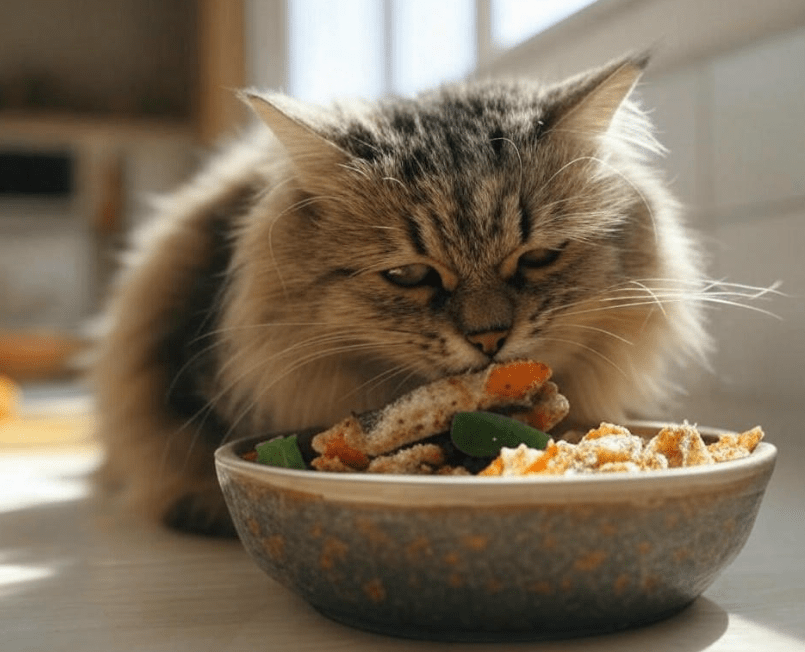
Maine Coon kitten socialization is a vital step in raising a confident, friendly cat who thrives in any environment. By starting early, using gentle handling, and exposing your kitten to people, pets, and stimuli in a positive way, you’ll set them up for a lifetime of happiness. Tailor socialization to their developmental stages, address challenges with patience, and provide a stimulating, safe environment to nurture their sociable nature. With consistent effort, your Maine Coon will grow into a well-adjusted companion, ready to share their love and charm.
Begin socializing your kitten today, and consult a vet or behaviorist if you encounter difficulties. Your dedication will ensure your Maine Coon becomes the confident, gentle giant they’re meant to be.

